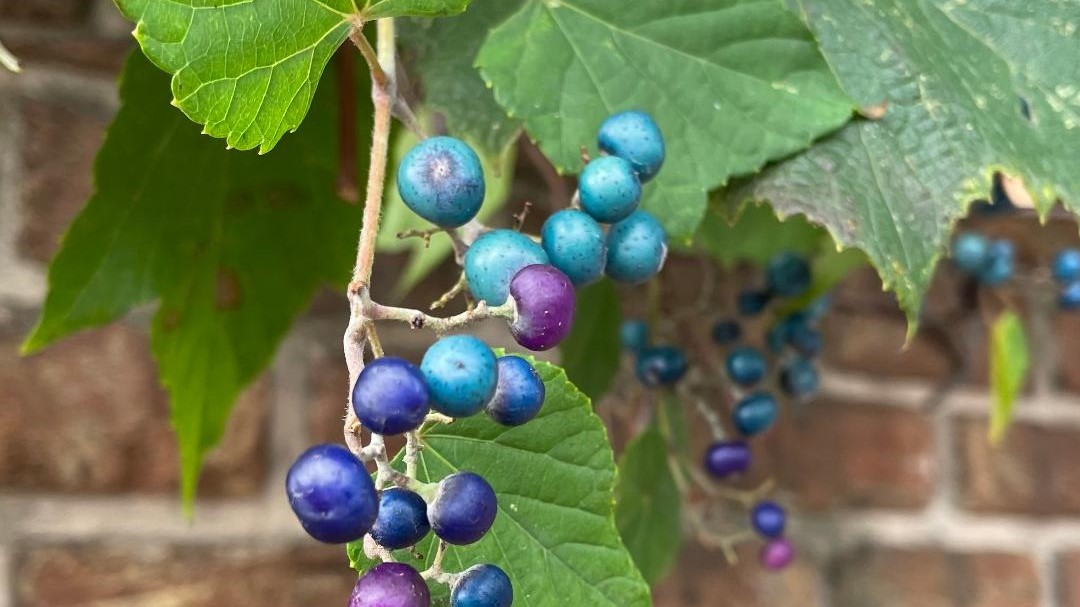By Angela G. Nannetti
First the Northern Snakehead Fish, then the Spotted Lanternfly, and now, the latest on an ever-growing list of invasive species being spotted in Brooklyn is the Porcelain Berry. Identified last week in Bergen Beach and reported to be growing in absolute abundance on many of the trails in Floyd Bennett Field this summer, the plants’ vines and leaves closely resemble that of a grape, but its speckled berries are unmistakable, ranging in color from pink, purple and blue to a vibrant turquoise depending on their pH as they ripen.
Although intentionally imported into the United States from Japan and China in the 1870s for its exotic, ornamental beauty and purported medicinal qualities, it wasn’t long before the plant became one of horticulture’s most reviled and importunate weeds, the seeds of which are spread far and wide and with reckless abandon by birds, many of whom find the berries delectable and often excrete them mid-flight miles away from where they were consumed. With each vine capable of growing in excess of 25 feet and the ability to tolerate almost any climate – dry or moist, sunny or shady, poor or rich soil – the Porcelain Berry is both hardy and aggressive and can outcompete and even choke full-grown trees by blocking out their sunlight.
In parts of Westchester, for example, Porcelain Berry vines have grown so out of control, they have actually weakened and killed many of the trees that hang over the Saw Mill River and Bronx River Parkways, creating a potential hazard for the drivers below. The NYS Department of Transportation has been having such a hard time scaling the vines back to their deep, thick roots that they had to enlist the help of volunteer pruners! Instead of human volunteers, The Riverside Park Conservancy opted for a squad of goats to deal with theirs, knowing that the cuties can climb even the most challenging slopes and inclines, eat 25 percent of their own body weight in vegetation each day and that unlike birds, whose digestive tracts actually help seeds to germinate, a goat’s gut neutralizes seeds and renders them ineffectual.
Experts differ on whether Porcelain Berries are safe for human consumption, some suggesting that even a low toxicity can be dangerous in large quantities, but they concur that they are pretty unpalatable, describing them as slimy and bland. Experts also agree that gardeners should use gloves when handling the plants, as they can be allergenic to some. Direct, prolonged contact with the plant can cause pain, redness, inflammation, itching, blistering and peeling of the skin, and swelling, burning and irritation of the eyes, so it is best to proceed with caution if you intend to remove the plants from your property.
While small vines are easy to pull and uproot, the larger ones should be cut near the ground and chemically treated to prevent new growth. If there are berries on the vines, they should be bagged and disposed of to prevent further propagation. Despite their being banned and listed as a “Prohibited Species” by the NYS Department of Environmental Conservation, the Porcelain Berry plant continues to be purchased and planted by unwitting gardeners, so as with everything else, spreading awareness is key to preventing any further spread of this beautiful yet treacherous species.

